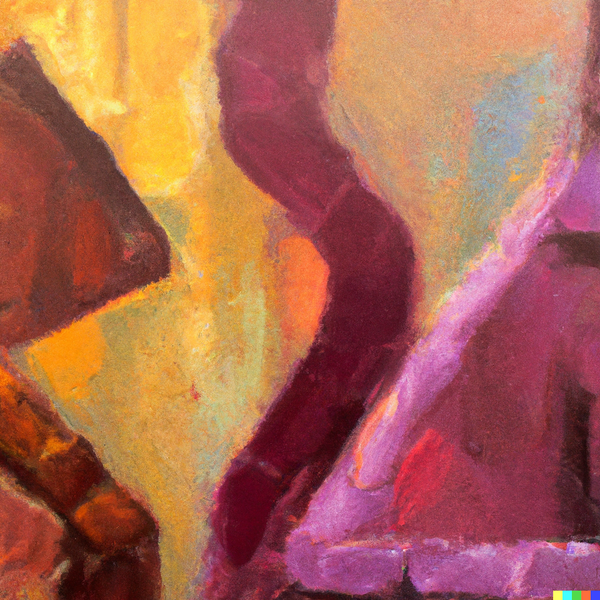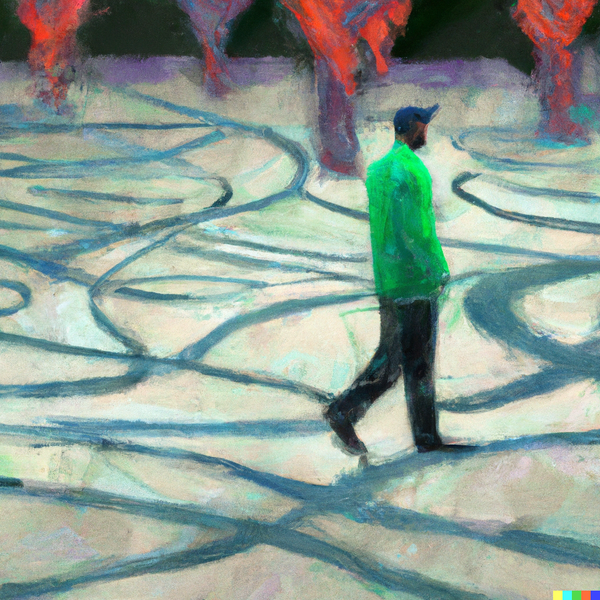letter on the method of how to dispel fomo

This last week, I was asked by one of my professors to put into written form arguments that counteract the feeling commonly known as FoMO, the Fear of Missing Out. I have set out, since then, to curate a response that dissects what exactly FoMO is, how it arises, and then, how to preserve oneself from its pervasiveness. Consider this, one of the many manuals available to you on how to rid yourself of this angst that roams around like a roaring lion seeking victims to devour. I have written this for you, in hopes that it will be sufficient in your times of uneasiness, in those fast-approaching minutes of the day, or night, when all your mind’s energies are concerned with the supposedly-better experiences that other people are having in other parts of the world that you just so happen to not be in.
To begin the process of dispelling FoMO, we first need to register where it arises from. From the surface, FoMO seems to emanate from the common mistake of not minding one’s own business. It takes shape when our hearts start to worry that we are failing to benefit from experiences, events, and information that are already being enjoyed by others. We fear that we will miss out on significant news, and eventually will be left out of social circles created and maintained by our peers, most commonly through social media. Therefore, the causes of FoMO are already apparent: one feels uneasy from the thought that there are important experiences and information out there that one is not partaking in. This uneasiness often indicates that one is not content with knowing and mastering one’s affairs alone, but rather feels that it is just as important, if not more, to know what goes on outside oneself. Thus, we ought to investigate whether anyone can truly be free from this false need to remain cognizant of the state of other people’s lives.
Yet it is impossible that one completely rids oneself of this desire to know what other people’s lives are made of. It is only natural because these individuals may form either part of our immediate environment or their actions may have the means to affect our surroundings. So the happenings in other people’s lives are not exactly separate from those in our own. Necessarily then, the ability to stay focused on one’s own life is only possible in one’s mind, where one observes their own thoughts and actions and then decides that complete knowledge about oneself is sufficient. Therefore, if we want to practice the habit of minding our own business, we must contemplate whether the information we learn about other people plays a unique role in our lives or if it is just fluff that if not minded, would lessen the burden of information that we carry. In other words, does watching a fifteen-second story on your friend's Instagram account add to your life in a way worth not missing out on?
You may say, some information this friend shares is important. For instance, you may have found out about the queen’s passing, Russia’s war in Ukraine, the earthquakes in Papua New Guinea, the floods in Pakistan, and the long-awaited meeting of Cristiano Ronaldo and Jordan Peterson through scrolling on your friends’ Instagram stories. That is one way of staying informed on important news. Nevertheless, if the news is truly essential to our overall awareness of global events, would the only way for it to reach the masses be through your friends’ Instagram stories? What about the people whose friends do not have Instagram accounts to post stories on? It follows then that if news is truly necessary to reach the citizens of the world, there must be multiple means to disseminate it without the contamination of your friends’ meme posts, engagement announcements, and ear-gouging music choices. For it is not natural that news sources share information as important as disease outbreaks and political elections exclusively on Instagram, which only has about 1.4 billion users, out of the 8 billion humans in the world. Yet who is to stop you, my dear reader, if Instagram stories and reels are your choicest means of gathering important global and local news?
Nonetheless, if we truly care about the happenings of the world and the potential contributions we can make in softening the hard and strengthening the good, ought we not strive to receive our news from the purest sources available? If our wish is to stay informed on global politics, we will certainly do our best to find the most inclusive source of political news. If our desire is to become financially literate, then we will find newsletters with the most economically-relevant information. If our hope is to stay alert to relevant social activist movements on the globe, we will seek out news outlets with sturdy and unbiased reporting on initiatives that support the liberation of marginalized peoples. May I suggest that these Instagram friends of yours cannot possibly be the answers to all your news-related questions? As a matter of fact, not any one person can be fully well-versed, at least enough to the point of being a pure news source, on information about the link between US presidents and the wars they wage, rates of cryptocurrency and the mood swings of the stock market, the #BLM movement, and the decline in mental health among teenagers. May I suggest, if I will, that it is completely possible to stay informed on all these important global conversations without having to deal with loud snippets of your friend’s attendance at a Harry Styles concert, photos of them bowling with their boyfriend or camel rides in a random desert in Dubai? If you agree, and I hope you do at this point, then it renders the uneasiness you feel from not having any of the quadrillion social media apps completely pointless. That even if you indeed are missing out, you are not really being left out of some special or magical experiences that just so happen to be only available through interaction with your friend’s Instagram stories.
But you might say, global news is only an excuse to be on social media. That truly, you use social media for its intended purpose: to stay social. Well, that is a good desire. We see this clearly in the design of social media itself, there is a comment section and reply buttons everywhere for a reason. In fact, dialogue on social media can be rather organized compared to real life where there are no threads and therefore turn-taking has proven quite difficult for most fierce debaters. Yet, unless you live in a completely secluded environment, like under a rock, with Patrick Star, then there must be people around you capable of being social without the need for Instagram. And the argument here is the same… if your desire is to truly be a social being, to whatever degree that comes naturally to you, there will be means to do so successfully within your natural environment. There must be other people close to you that you can hold as many social dialogues as you deem fit, after having gathered it from pure sources of information, and then pooling your thoughts together in a decent conversation. Granted… there may be a danger of creating an echo chamber because birds of a feather flock together, which is why you might say, that you need to stay on social media to expose yourself to varying points of view. That is also a good argument. Yet we see that the world is expanding and more and more societies are becoming less homogenous. Unless you happen to be in a society that forbids freedom of speech, and I know they exist, I doubt whether it is truly possible for all the distinct people in your immediate community to agree on every single piece of news that is printed in a newspaper. You must disagree, at least even on the writer’s grammar or stylistic choice… and that is more than enough to get the effect that we seek from social conversations, that is, to challenge and to be challenged so that we may collectively grow in our understanding of the world around us. Therefore, you need not waste your energies arguing with @bigbootylicious_69 from Kentucky at 2 in the morning, in order to maximise your element as a social being.
The aim is not that you don’t miss out. You most certainly will. But not from the quintessential happenings of life. You will most surely leave this earth having not known everything there is to know, seen all your eyes can afford you to see, tasted every food your human tongue can handle, or smelled every scent your nose can breathe in. This does not mean that you should not seek out new experiences or sources of knowledge that might enrich your life. Certainly do. It is a goal worth pursuing. But… might I suggest that your friend’s Instagram post of their tuna sandwich might be something worth missing out on?
*this article was written after "Letter On The Method Of How To Dispel of Sorrow" by the philosopher Al-Kindi.





